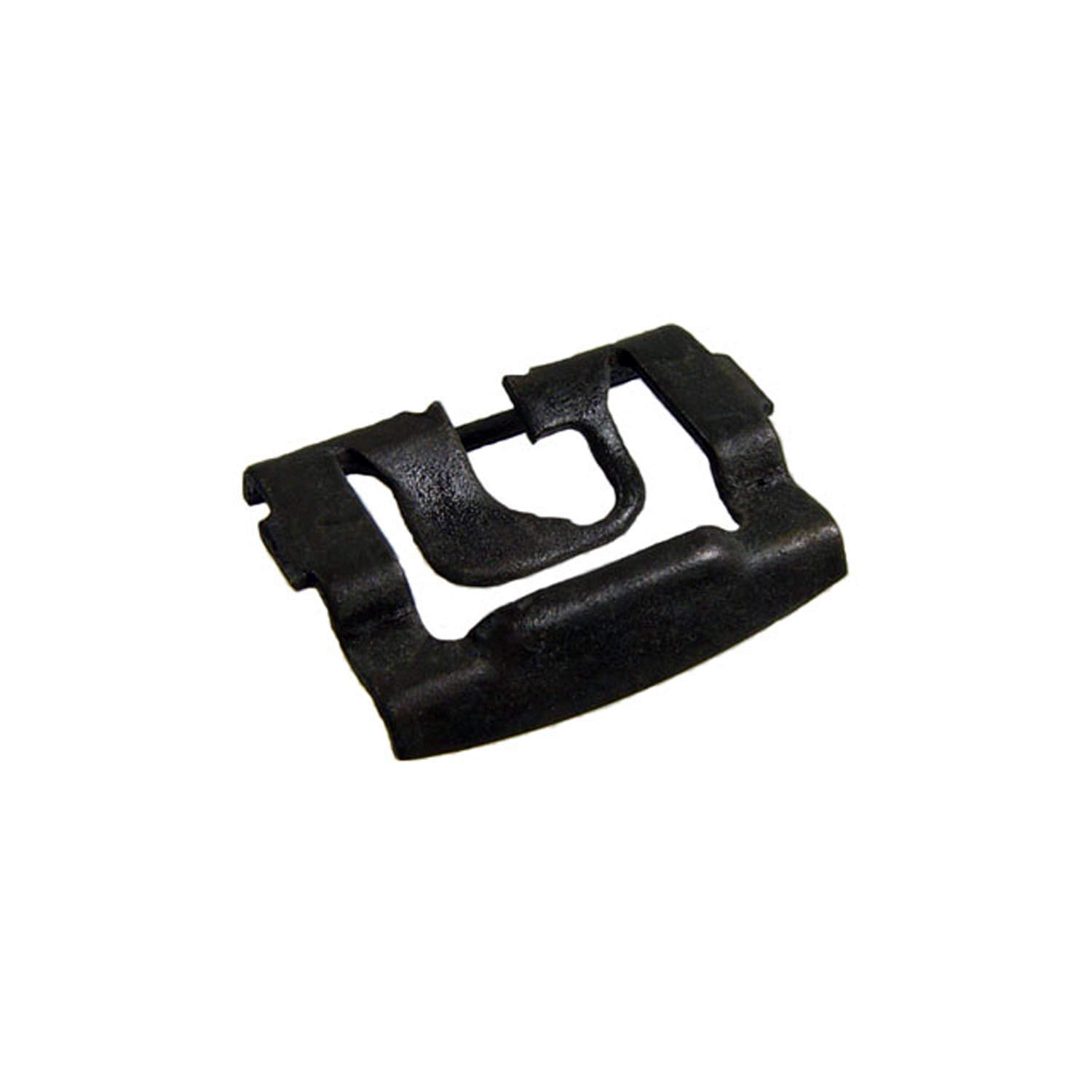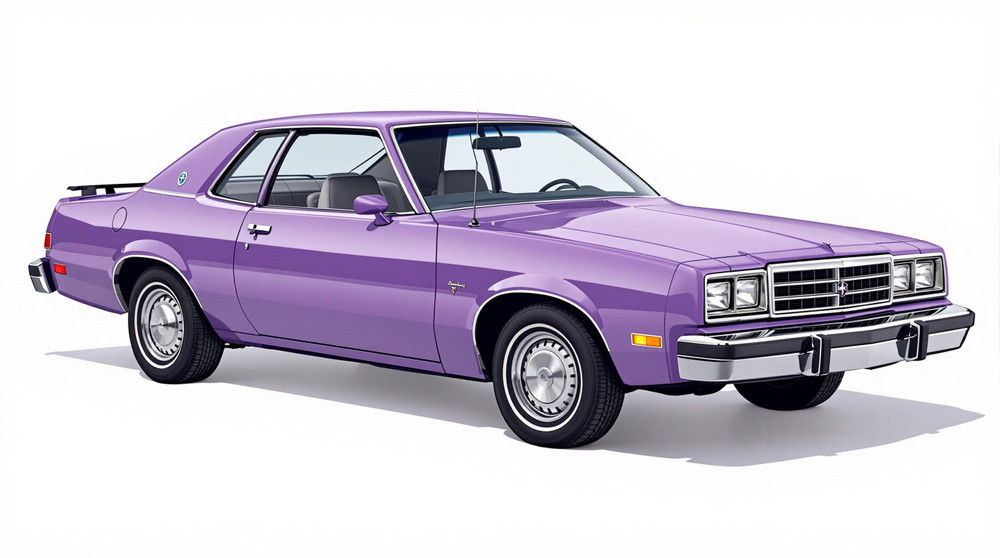Image of 1981 Plymouth Horizon, Note: These illustrations use artistic license and may differ from actual historical models.
Performance Metrics
Fundamental Metrics
Emotional Appeal
MMP Rating
| Engine Specifications | |
|---|---|
| Engine: | 1.7L I4, 2.2L I4 |
| Displacement: | 105-135 cu in. |
| Horsepower: | 63-84 hp |
| Torque: | 78-111 lb-ft |
| Compression Ratio: | 8.5:1 |
| Ignition System: | Electronic ignition system |
| Cooling System: | Liquid-cooled |
| Performance Specifications | |
| 0-60 Time: | 14-16 seconds |
| 1/4 Mile Time: | 19-21 seconds |
| Top Speed: | 100 mph |
| Transmission and Drive | |
| Drive Type: | FWD |
| Transmission Type: | 4-speed manual, 3-speed automatic |
| Fuel and Efficiency | |
| Fuel System Type: | Carburetor |
| MPG: | 25-30 mpg |
| Dimensions and Brakes | |
| Brakes: | Front disc, rear drum |
| Wheelbase: | 99.1 in |
| Weight: | 2,200-2,400 lbs |
Note: Specifications for classic cars are given to the best of our ability, considering the limited and variant data available.
Introduction
The 1981 Plymouth Horizon emerges from the annals of automotive history as a testament to practicality and the American response to a fuel crisis. Born from the collaboration between Chrysler and its European counterpart, Simca, the Horizon was an attempt to offer an economical front-wheel-drive hatchback to a market dominated by rear-wheel-drive behemoths. Its inception marked a pivotal shift in American car manufacturing, embracing compact efficiency over traditional excess. A notable moment for the Horizon was its recognition as Motor Trend's Car of the Year in 1978, setting high expectations for subsequent models like the 1981 edition.
Design and Innovation
The exterior of the 1981 Plymouth Horizon was characterized by its boxy yet functional design, a hallmark of early '80s automotive aesthetics. The vehicle's straightforward lines and utilitarian silhouette were punctuated by a sloping rear hatch that provided ample cargo space. Inside, occupants were greeted with a no-frills interior where durability took precedence over luxury, with materials chosen for longevity rather than opulence. Technologically, the Horizon boasted an advanced transverse engine layout that was innovative for American cars at the time. Color options ranged from subdued earth tones to more vibrant hues, with shades like "Spinnaker White" and "Crimson Red" being popular picks. The most iconic body style was undoubtedly the two-door hatchback, which encapsulated the vehicle's blend of compactness and utility.
Historical Significance
The Plymouth Horizon's introduction into the market signaled a paradigm shift in American car design, steering away from gas-guzzling giants towards more fuel-efficient models. Its front-wheel-drive configuration and space-saving transverse engine were revolutionary for domestic manufacturers and influenced a generation of vehicles that followed. The Horizon stood out for its blend of European engineering and American sensibility, making it a unique player in an era of transition.
Performance and Handling
Performance-wise, the 1981 Plymouth Horizon offered modest figures, with top speeds hovering around freeway limits and acceleration from 0-60 mph taking a leisurely 13 seconds or so. However, its handling was praised for being nimble and responsive compared to larger contemporaries. The car's relatively light weight contributed to a driving experience that felt grounded and secure, even on less forgiving road surfaces. Drivers could expect a tactile connection with their vehicle, hearing the hum of its modest engine while navigating through daily commutes.
Ownership Experience
As a daily driver, the Plymouth Horizon excelled in urban environments where its size made it easy to maneuver and park. It also found favor among those looking for an affordable entry-level car that could double as an occasional showpiece at local car meets. Maintenance was relatively straightforward due to its simple mechanics and widespread availability of parts at the time. Reliability was decent, though not without its quirks—a common trait among vehicles of this era.
Fun Facts
The Plymouth Horizon had its share of quirks that added to its charm. For instance, it shared much of its DNA with the Dodge Omni, making them near twins under their respective badges. While not known for breaking speed records or endurance milestones, it did carve out a niche as one of America's first ventures into compact efficiency. Criticisms often centered on its lackluster power output and basic amenities but were countered by its affordability and practicality.
Collector's Information
Today, finding a 1981 Plymouth Horizon in pristine condition can be quite rare; production numbers were substantial but many have succumbed to age or neglect. As for value range, well-preserved examples might fetch anywhere from $2,000 to $5,000 depending on factors like originality and mileage—though these figures are best estimates given market fluctuations. The Horizon has yet to see significant appreciation as a collector's item but holds sentimental value for enthusiasts who appreciate its place in automotive history.
Conclusion
The 1981 Plymouth Horizon stands as an emblematic piece of American automotive evolution—a bridge between eras where efficiency began to take precedence over extravagance. While it may not have been adorned with high-performance accolades or luxury appointments, it offered reliability and practicality at a time when those traits were becoming increasingly important to consumers. As we look back on this humble hatchback, we're reminded that significance in automotive history isn't solely reserved for the fastest or most luxurious—it's also about cars like the Horizon that marked a turning point in design philosophy and consumer expectation.
1981 Plymouth Horizon Catalog of Parts
 1981 Plymouth Horizon Windshield and Rear Windshield Molding Clip. Made of steel-WF 216Windshield and Rear Windshield Molding Clip. Made of steel. 1-1/8" X 5/8". Each
1981 Plymouth Horizon Windshield and Rear Windshield Molding Clip. Made of steel-WF 216Windshield and Rear Windshield Molding Clip. Made of steel. 1-1/8" X 5/8". EachWhy Choose Metro?
For over 100 years, Metro Moulded Parts has been the pinnacle of quality in classic car restoration parts. Our commitment to precision and authenticity in every component ensures a perfect fit and an OEM-level appearance.
- Expert Craftsmanship & Quality: Each part is a testament to our dedication to reliability and perfection, crafted from original designs and thoroughly tested.
- Advanced Technology: We use cutting-edge techniques to create flawless, long-lasting parts that surpass others in performance.
- SuperSoft Sponge – The Ultimate Door Seal: Not only are our door seals 30% softer than competitors', but they're also guaranteed to never leak. They effectively reduce wind and road noise, enhancing your classic car's comfort and driving experience.
- Proudly American: Our parts are a product of American craftsmanship, made in the USA with a spirit of excellence and heritage.
- Unrivaled Warranty: We back our products with a 30-year industry-leading warranty, a testament to our confidence in their quality.
Join us in preserving the legacy of classic cars with parts that are crafted for perfection, not just made.

